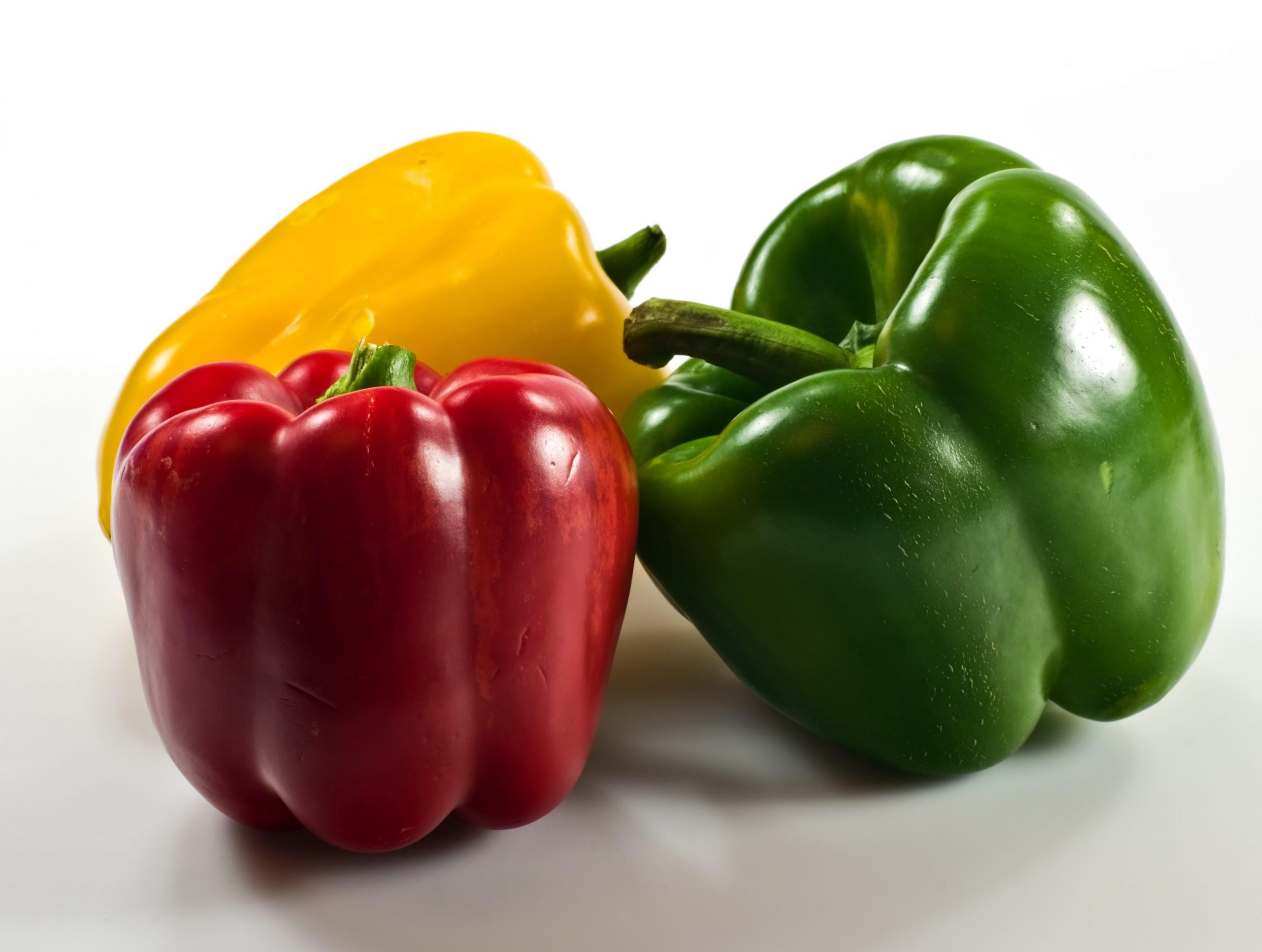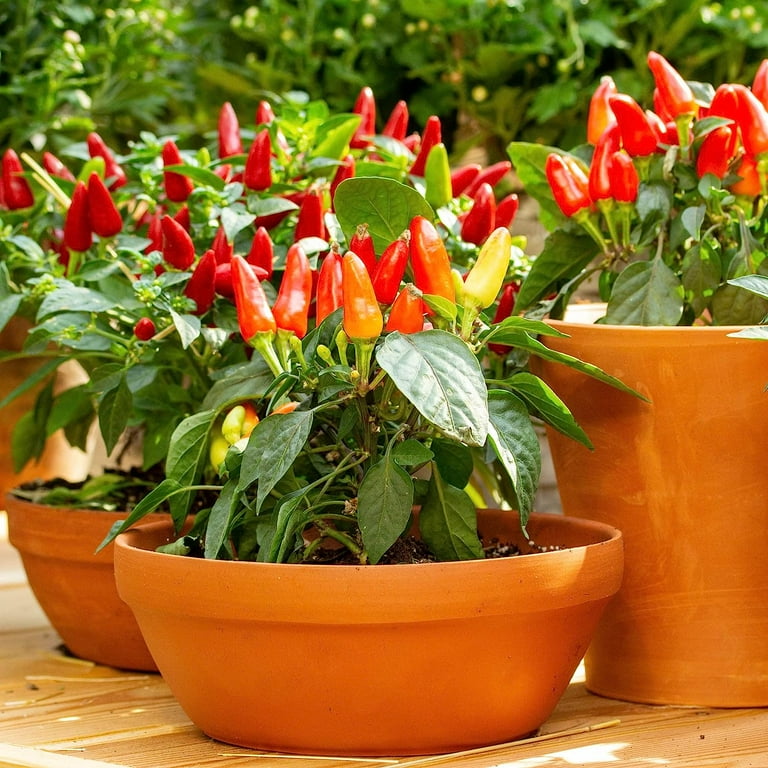Organic Vs. Synthetic Fertilizers: Which Is Best for Supporting Healthy And Balanced Pepper Plants?
In the world of nurturing healthy pepper plants, the choice between natural and artificial plant foods stands as a crucial choice with far-ranging effects. While both choices objective to offer important nutrients to support plant development, the subtleties of their effect on the dirt, plant health and wellness, and the environment trigger a dispute that echoes throughout the horticulture neighborhood. Understanding the distinctive benefits and potential challenges of each fertilizer kind is important for pepper cultivators seeking to maximize their yields while keeping an eco-conscious and lasting technique.
Benefits of Organic Plant Foods
Organic plant foods use a sustainable and environmentally-friendly method to beneficial pepper plants, offering crucial nutrients without using artificial chemicals. These natural plant foods are originated from natural sources such as compost, manure, bone meal, and seaweed, advertising soil health and wellness and biodiversity. Unlike synthetic fertilizers, natural options release nutrients gradually, guaranteeing a well balanced and steady supply for pepper plants to flourish.
One substantial benefit of organic plant foods is their ability to enhance dirt structure and water retention. By improving dirt health and wellness, organic plant foods advertise useful microbial task, which aids in nutrient uptake by pepper plants. Additionally, natural plant foods minimize the threat of chemical run-off, safeguarding water sources from air pollution and safeguarding the atmosphere.
In addition, natural plant foods add to lasting soil fertility by advertising the development of advantageous soil microorganisms. These microorganisms aid break down raw material, releasing nutrients in a type that is conveniently obtainable to pepper plants. best fertilizers for peppers. By fostering a healthy soil community, natural fertilizers sustain lasting pepper farming techniques that profit both plants and the setting
Downsides of Artificial Plant Foods
Artificial plant foods, in comparison to their natural equivalents, posture numerous negative aspects when made use of to nurture pepper plants, influencing both plant wellness and ecological sustainability. One significant drawback of synthetic fertilizers is their tendency to leach nutrients from the dirt rapidly. This fast leaching can result in nutrition discrepancies in the soil, causing plants to struggle with shortages or poisonings. Additionally, artificial plant foods can hurt useful soil microorganisms, such as earthworms and valuable microorganisms, interrupting the soil ecosystem's equilibrium.
Additionally, the overuse of synthetic plant foods can add to water pollution. Excess plant foods not taken in by plants can wash away right into water bodies, resulting in eutrophication, where algae blossoms diminish oxygen degrees in the water, damaging water life. Moreover, synthetic plant foods are normally originated from non-renewable sources, such as fossil fuels, adding to carbon emissions and environmental deterioration during their manufacturing.
Nutrient Absorption Comparison
When comparing artificial and natural plant foods in terms of nutrient absorption, natural plant foods have the benefit of providing a more balanced and slow-release resource of nutrients. Organic plant foods contain a variety of macro and micronutrients that are not only valuable for the plants but also promote healthy soil microbial activity, which helps in nutrient uptake.
Additionally, organic plant foods enhance soil structure and water retention capacity, allowing pepper plants to access nutrients much more effectively. This better dirt top quality promotes origin growth, making it possible for far better nutrient absorption. Artificial plant foods, although at first improving plant growth as a result of their high nutrient focus, may impede long-lasting nutrient absorption by degrading dirt wellness with time.
Ecological Effect Considerations

On the various other hand, synthetic plant foods, although frequently more focused and quickly offered to plants, can have detrimental impacts on the environment otherwise applied effectively (best fertilizers for peppers). Their manufacturing needs high power inputs, bring about greenhouse gas discharges and adding to environment modification. Moreover, the drainage of excess synthetic plant foods can infect water sources, resulting in eutrophication and damaging aquatic ecological communities.
Finest Plant Food Practices for Peppers
When fertilizing pepper plants, enhancing nutrient uptake and lessening ecological impact are essential considerations. To accomplish this, it is vital to follow best fertilizer methods tailored to the certain demands of pepper plants. One critical practice is to perform a soil test before applying any fertilizers. This test can figure out the pH degree of the dirt and determine any type of nutrient shortages, assisting you in picking one of the most ideal plant food solution.
An additional crucial method is to fertilize pepper plants at the best time. Usually, peppers gain from receiving plant food at growing and afterwards again when they start to flower. Over-fertilizing can bring about nutrition inequalities and damage the plants, so it is crucial to comply with recommended application prices.
In addition, selecting a balanced plant food with an NPK ratio that suits pepper plants' needs is essential. Organic fertilizers, such as compost or manure, can be superb options as they release nutrients gradually and enhance dirt framework over time. Synthetic plant foods can supply a quick nutrient increase when needed. Inevitably, combining natural and synthetic plant foods sensibly can help nurture healthy and balanced pepper plants while reducing ecological effect.
Verdict

Organic plant foods offer a sustainable and discover here environmentally-friendly technique to beneficial pepper plants, offering crucial nutrients without the use of artificial chemicals. Unlike artificial plant foods, organic choices launch nutrients gradually, ensuring a well balanced and steady supply for pepper plants to flourish.
Synthetic plant foods, in comparison to their natural counterparts, position different negative aspects when used to nourish pepper plants, impacting both plant health and wellness and ecological sustainability. When contrasting synthetic and organic plant foods in terms of nutrient absorption, natural plant foods have the benefit of giving a more balanced and slow-release source of nutrients.Furthermore, organic fertilizers improve dirt framework and water retention capability, permitting pepper plants to accessibility nutrients extra successfully.